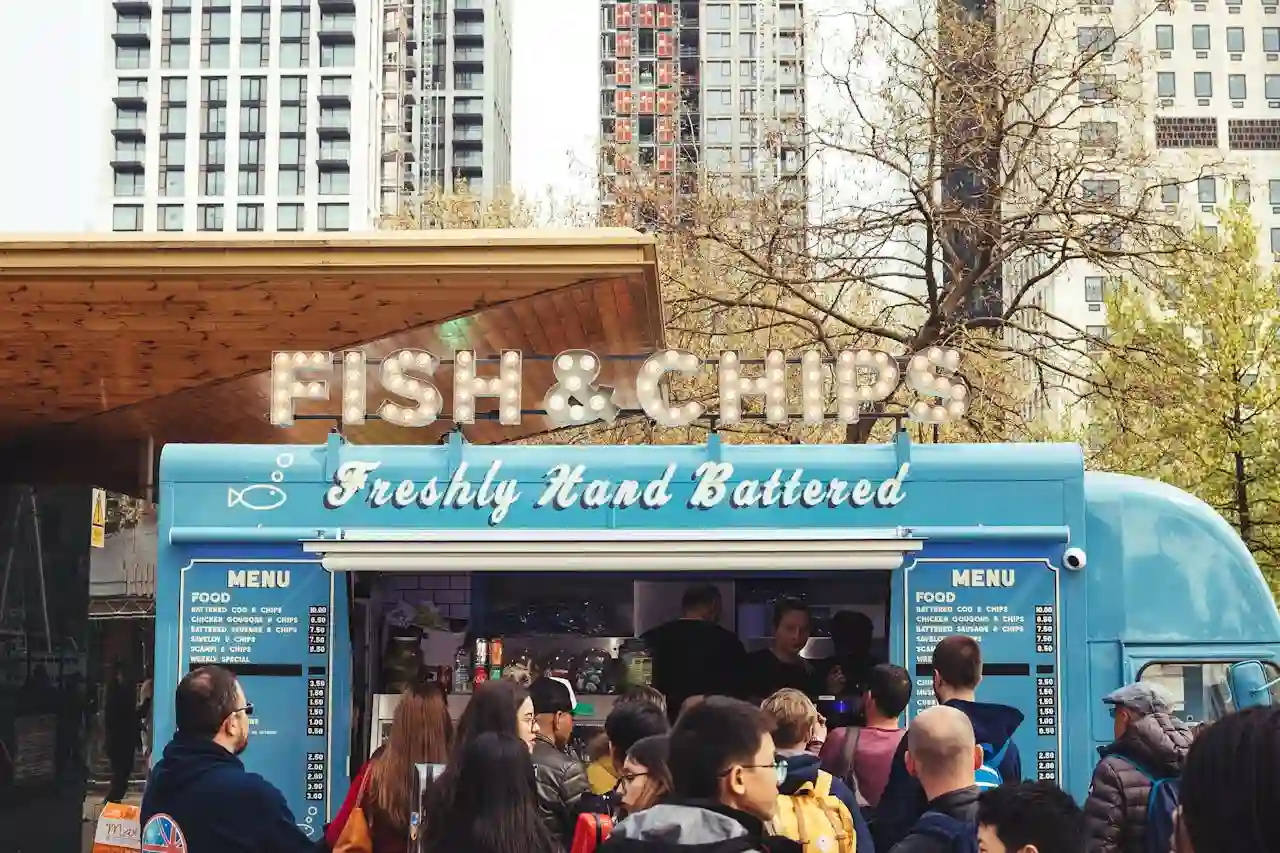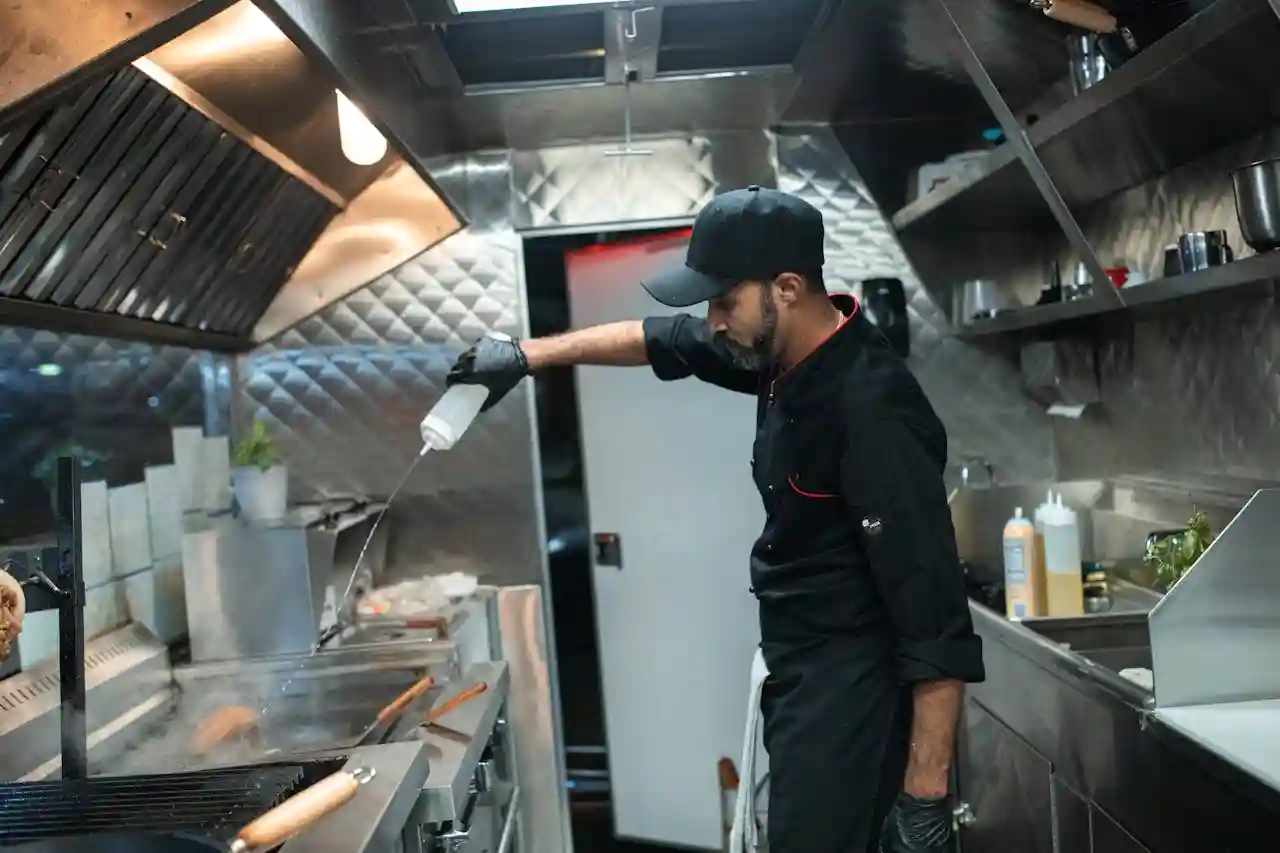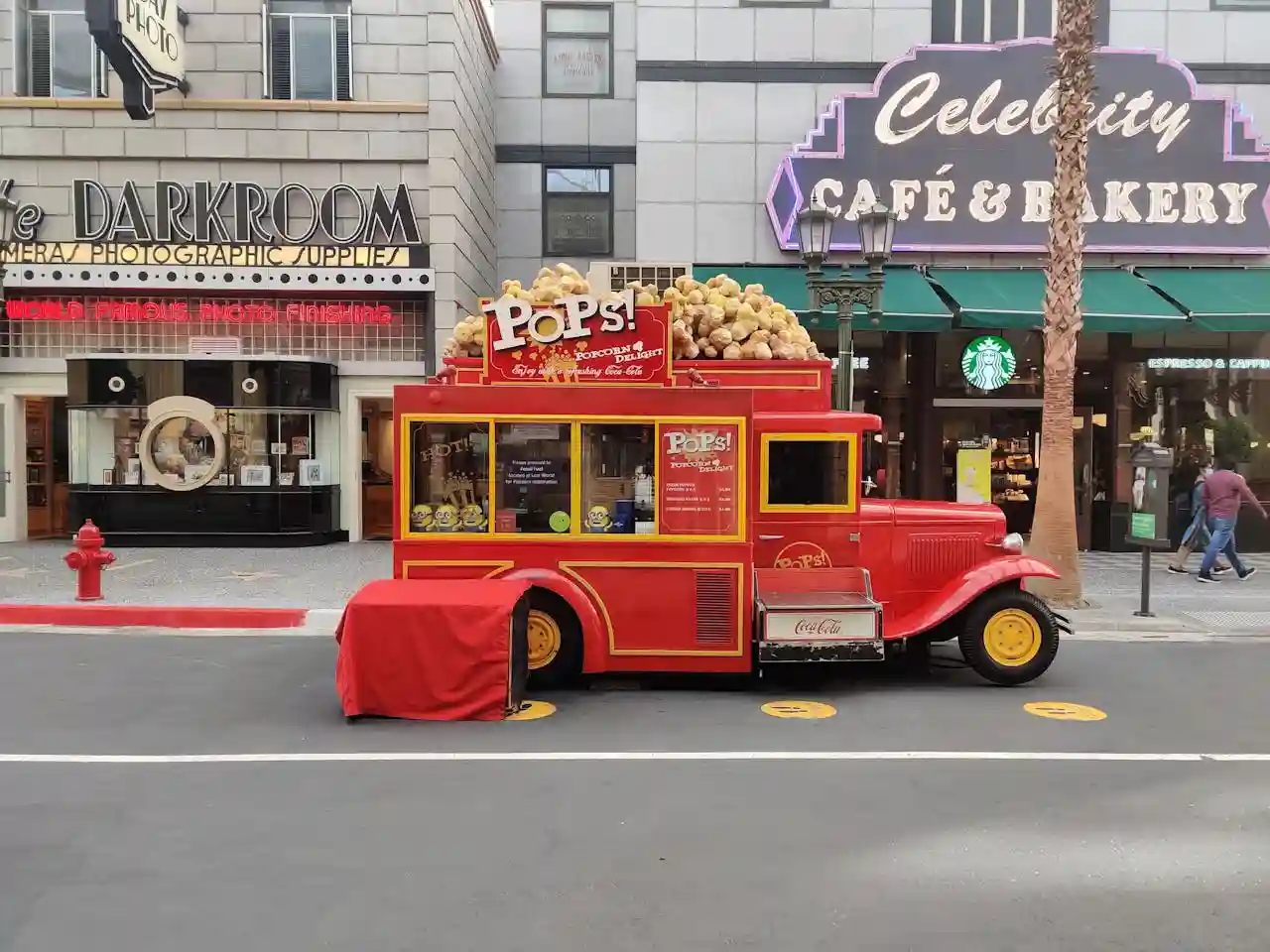Food Truck Rentals - How Much Is It to Rent a Food Truck
Wanting to start your food truck business, but buying one is too expensive? Here are the details you need for the next best option: food truck rentals.
Tauseeq Magsi
loading...

You've made up your mind to rent a food truck and turn your culinary dreams into a mobile business. Great choice!
But before you start, let's talk numbers and logistics.
The food truck industry has grown by almost 11% each year over the past five years and it was worth about $2.4 billion in 2024. Sounds like a great opportunity. Right?
Which leaves us with the big question: how much is it to rent a food truck?
You probably have many questions, and we'll cover everything from rental prices in major cities to the steps you need to get ready for business.
So, let's get started with the basics first!
What Makes Up the Cost of a Food Truck Rental?
Alright, let's break down what makes up the cost of renting a food truck. There's a lot to consider, and each factor can impact your budget differently.
By the way, did you hear about the guy who rented a food truck and quickly became successful? You can read this Reddit story for some inspiration.
He started with just one truck and, in no time, grew his business. Stories like his show that food truck business can be done if you know what you're getting into.
So, what are the factors that contribute to the food truck rental cost? Let's find out!
Larger, Newer Food Trucks Will Cost You More
The size and age of the food truck you rent are big factors in cost. Newer and larger trucks tend to be more expensive because they come with more advanced features and offer more space for cooking and storage. If you're planning on serving a big menu, a larger truck might be worth the investment.
Extra Equipment Can Increase Your Rental Price
When you rent a food truck, you have to think about the equipment you need. Trucks with extra gadgets like deep fryers and generators will cost more. These tools can make your life easier and broaden what you can offer customers, but they do add to your rental costs.
Different Cities Have Different Rules and Fees for Food Trucks
City regulations are another thing to keep in mind. If you're operating in a city with a lot of red tape, expect to pay more. Some cities have strict health and safety regulations, and getting all the necessary permits can add up. It's important to know what city you're in before you commit.
Easy Parking Can Save You Time and Money
Believe it or not, parking availability can also affect your costs. Finding a good spot to park your food truck where you're allowed to sell is crucial. The easier it is to park, the fewer operational headaches you'll have. Some cities offer designated spots for food trucks, which can save you time and reduce stress.
Insurance and Maintenance Are Essential Costs
One more thing you can't forget is insurance and maintenance. These are ongoing costs that protect your investment and keep everything running smoothly. You'll need insurance to cover any accidents or damages, and regular maintenance to make sure the truck stays in good condition.
So, How Much To Rent A Food Truck?
Let's talk about the likely cost of renting a food truck in various cities in the United States. It's a popular choice for many food entrepreneurs.
But, before you jump in, it's good to know what you're looking at cost-wise.
Monthly Rent
First off, the monthly rent for a food truck can range quite a bit. On average, you might pay anywhere from $2,000 to $3,000 each month. But, this can vary depending on where you're located. Some cities are more expensive than others.
For example, renting in a big city like Chicago or Los Angeles could cost more. Smaller towns or rural areas might be cheaper.
Security Deposit
Next, let's talk about the security deposit. Most rental agreements will require you to pay a security deposit upfront. This is usually equal to one to three months' rent.
So, if your rent is $2,500 a month, you might need to put down $2,500 to $7,500 as a deposit. This money is often returned to you at the end of your lease, as long as there are no damages or unpaid fees.

Utilities
Utilities are another thing to consider. Some rentals might include utilities in the rent, like electricity and water. But, this isn't always the case.
You might need to handle these bills separately. Make sure to check your rental agreement so you know what to expect.
Insurance
Insurance is very important. It protects you and your business in case something goes wrong. The cost for insurance can vary, but it usually ranges from $1,000 to $5,000 per year. Factors like your truck's value and your location can impact this cost.
Licenses and Permits
You will also need to get licenses and permits to operate legally. This might include health permits, business licenses, parking permits, and event permits. These can cost a few hundred to a few thousand dollars each year. The exact amount depends on where you are and what kind of permits you need.
The yearly cost of food truck licenses and permits can vary from $500 to $2,000 in some cities and states.
Maintenance and Repairs
Maintenance and repairs are another expense to plan for. Even if some routine maintenance is covered by your rent, you should save money for unexpected repairs.
Things like engine maintenance or fixing kitchen equipment can add up. Keeping a little money aside for this each month is a smart move.
There's no exact amount to save, but a good rule is to plan for about$1,000 per month or 5% of the total cost of your equipment, whichever is higher. Equipment will inevitably break down, so it's wise to have a budget for repairs. This way, you won't have to stop serving customers because you can't afford to fix something.
Equipment
Outfitting a food truck with essential equipment can vary widely depending on your menu and cooking needs. Refrigeration units may cost between $1,000 and $3,000, while cooking equipment like grills, fryers, and stovetops can range from $2,000 to $10,000. Prep tables and counters could set you back $500 to $1,500, and ventilation and fire suppression systems can be another $1,000 to $3,000.
Additionally, miscellaneous small appliances and tools might cost around $500 to $2,000.
Supplies
Initial supplies also factor into your budget. You will need to stock up on ingredients, which can range from $500 to $2,000 depending on your menu.
Disposable items like cups, plates, and utensils could cost between $300 and $700. Cleaning supplies will add another $100 to $300 to your initial costs.
Don't forget marketing and branding materials, such as signs and menus, which can range from $200 to $1,000.
Total Monthly Budget
So, when you add it all up, after considering how much is it to rent a food truck, it turns out that renting a food truck isn't just about the monthly rent. You also need to think about the security deposit, utilities, insurance, licenses, maintenance, equipment, and supplies.
A rough monthly budget could be around $3,000 to $4,000 in the US, but this amount can vary significantly depending on the city or state where you plan to operate.

Getting Ready to Start Making Sales in Food Truck Rental Business
So, you've rented a food truck. Does that mean you're ready to start selling burgers, tacos, or ice cream right away? Not quite.
There's a bit more you need to do before you can start serving customers.
Here's a step-by-step guide to get you there.
Research and Rent
First off, you need to do your homework. Look for a reliable rental company in your city. Talk to other food truck owners and read reviews online. Make sure the rental company has a good reputation. Once you've found a trustworthy place, rent a food truck that fits your needs.
Check that it's in good condition and has the space you need for your kitchen setup.
Get Permits
Next, you need to get legal. Reach out to your local health department and city offices. You'll need various permits and licenses to operate your food truck. This might include a health permit, a business license, and parking permits.
Make sure you understand the requirements and get everything in order. This process can take some time, so start early.
Prepare Equipment
Once you have your permits, it's time to get your truck ready. Make sure it's fully stocked with all the necessary equipment. You'll need things like grills, fryers, and refrigerators.
Also, don't forget smaller items like pots, pans, and utensils. Check that everything works properly. Your truck should feel like a real kitchen.
Menu Setup
Now for the fun part — the menu. Create a menu that's practical and profitable.
Think about what you can cook well in a small space. Consider dishes that are quick to prepare and popular with customers. Testing your menu items is a good idea.
Get feedback from friends and family to see what works best. Adjust your menu based on what they like.
Launch
Finally, it's time to launch. Pick a high-traffic area where people are likely to buy food from a truck. This could be near a busy park, a business district, or at a special event. Make sure you have all your supplies and ingredients ready.
Open your windows and start serving customers with a smile.
The True Time Investment of a Food Truck Entrepreneur
Running a food truck is not just about cooking and serving food. It's a full-time commitment that needs a lot of hard work and dedication.
Here are some of the things you should be prepared for when you decide to operate a food truck.
A Word At The End
By now, you should have a better understanding of how much to rent a food truck and what to expect when starting your own food truck business.
Before putting more money into something bigger, renting a food truck can be a great way to see how things go.
If you have the right knowledge, you'll be able to do well in the kitchen.

©2025 Cocina Digital Hospitality Group, Inc. All rights reserved.
No part of this publication may be reproduced, stored in a retrieval system, or transmitted in any form or by any means, electronic, mechanical, photocopying, recording, or otherwise, without the prior written permission of the publisher.
We use cookies to enable you to use our site, understand how you use our site, and improve your overall experience.
Cookies allow us to personalize content, track which pages are most popular and least popular, and provide advertising that may be relevant to you.
Please note that cookies that are essential to the proper functioning of the site are required and cannot be disabled.
They are usually only set in response to actions made by you which amount to remembering your settings, a request for services, such as setting your privacy preferences, logging in, or filling in forms.
As such, they are the only cookies that are enabled by default.
You can set your browser to block or alert you about these cookies.
By continuing to use our site, you accept our use of cookies.